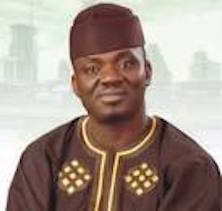community
UTME: JAMB To Hold Additional Mop-up Exam for Absent Candidates

Joint Admissions and Matriculation Board (JAMB) says it will conduct additional mop-up examinations for candidates who missed the 2025 Unified Tertiary Matriculation Examination (UTME).
JAMB Registrar, Prof. Is-haq Oloyede, stated this on Wednesday in Abuja at a meeting with key stakeholders to address the challenges encountered during the 2025 UTME.
Oloyede said that the board would accommodate the estimated 5.
6 per cent of candidates who missed the examination by organising a special mop-up exercise.He said that the board had extended the opportunity to all the affected candidates, regardless of the reasons for their absence.
“Normally, we hold one mop-up nationwide for those with one issue or the other.
“But this time, we are creating a new mop-up. Even those who missed the earlier examination due to absence, we will extend this opportunity to them.
“It is not that we are doing something extraordinary; in class, you make up an examination when students miss it for one reason or the other; we just don’t allow abuse of that.
“So we will allow all the candidates who missed the main examination for any reason to take part in this mop-up,” he said.
Oloyede criticised some public commentators who misunderstood and misrepresented the role of UTME, while clarifying that UTME was a placement test and not an achievement test.
According to him, the purpose of the examination is to rank candidates for available spaces in institutions and not to measure intelligence or overall academic potential.
The registrar further stated that high UTME score was not the sole determinant of admission, adding that combined performance, including post-UTME scores and school assessments, could significantly affect a candidate’s ranking.
While acknowledging the emotional strain experienced while announcing the UTME results, he noted that this was not indicative of an institutional weakness.
He expressed JAMB’s commitment to resolving issues affecting the examination process, even as he rejected comments suggesting that the administrative failure was due to incompetence or ethnic bias.
“I want to say this clearly, particularly because I accepted responsibility, not because I do not know how to do the work.
“I say it for the fourth time that no conspiracy theory is relevant to this case.
“Something happened; like people who have been doing something well for years and something just went wrong. That I should now throw them under the bus? No,” he said.
Oloyede, who frowned at those exploiting difficulties to promote ethnic or conspiracy-driven narratives, urged stakeholders to stop ethnic profiling in the education sector.
According to him, many of the criticisms of JAMB’s operations are rooted in ignorance.
The registrar, however, commended his team’s efforts, while also appreciating the resilience shown by candidates, many of whom, he said, had continued their exams, notwithstanding the various challenges. (NAN)
community
Democracy: Sen. Abiru Urges Support for Tinubu

Sen. Mukhail Abiru (APC -Lagos) has urged continued support and understanding for President Bola Tinubu as he implements bold policy decisions aimed at repositioning the nation for sustainable growth.
This is contained in his democracy day message by his Media Aide, Mr Enitan Olukotun on Thursday in Ikorodu.
Abiru, who represents Lagos-East, urged Nigerians not to loose hope but to continue to uphold the core values of democracy and seek constructive ways to consolidate the gains made over the years.
Abiru, who is also the chairman, senate Committee on Banking, Insurance and Other Financial Institutions, stated that the democracy day called for reflection and appreciation for how far Nigeria had come as a democratic nation.
“It has been 26 years since Nigeria began its journey under this current democratic dispensation.
“Though the path has not been without challenges, we have every reason to celebrate the resilience, growth, and promise that our democracy represents.
“As we navigate this critical period in our nation’s history, I call for continued support and understanding for our dear President as he implements bold policy decisions aimed at repositioning our nation for sustainable growth.
Though the sacrifices may be difficult, they are necessary, and I am glad that the rewards have started manifesting across all sectors.
” I pay special tribute to the resilience, courage, and determination of the Nigerian people,” he said.(NAN)
community
Sallah Was Good for Our Business—FCT Beauticians

Beauticians, hairdressers, and grooming specialists across the Federal Capital Territory (FCT) said they recorded massive patronage during the just-celebrated Eid-el-Kabir festival.
During a visit to various salons and beauty parlors on Tuesday, beauticians said they had a huge customer turnout during the festive period.
Beauty professionals expressed immense satisfaction with the season’s turnout, describing it as one of the most rewarding times of the year.
Mrs Sahadatu Musa, a hairstylist in Nyanyan, shared her delight over the brisk business, noting the direct financial impact.
“I’m so happy. Business was great.
“What I’ve earned in the festive period will cover my children’s school fees and even new clothes for them.
It’s a real relief,” she said.She added that service rates typically rose during the festive season due to high demand.
“I handled more than 50 clients in a day during the festive period and as the day was not even over yet, many customers still came.
“Some clients opted for home services to beat the long queues at salons.
“It cost more, N6,000 instead of the usual N4,000 but it was worth it,” she said.
Mr Abubakar Abdellah, a henna Artist in Lugbe, also reported strong demand, noting that festive designs were particularly popular.
“Red henna went for N4,000, while the black variety costs N8,000.”
Barbers also experienced a surge in patronage.
Mr Kabiru Umar, a barber in Bwari, noted that he had to expand both his services and workforce to meet the growing demand.”
“Parents came in with their kids for haircuts, beard trims, and general grooming.
“We even added services like manicures, pedicures, and face massages.
“To keep up, I upgraded equipment, restocked supplies, and hired more hands,” he said.
For tailors, the period was equally hectic.
Zainab Abubakar, a tailor in Jikwoyi, who specialises in women’s wear, described it as the busiest and most profitable season.
“Orders started coming in two to three weeks before Sallah, but the real rush hit in the final days.
“Women wanted abayas made from lace, chiffon, or crepe, modest but stylish.
“I even had to turn down some orders. Time management was crucial or you would end up disappointing people,” she said.
From makeup artists to barbers, stylists, and tailors, professionals across the FCT said the 2025 Eid-el-Kabir was not only spiritually uplifting but also financially and professionally rewarding, marking a truly successful and fulfilling holiday season.(NAN)
community
Domestic Chores Not for Females Alone- Residents

Some residents of Karu Local Government Area of Nasarawa State have advised both men and women to support each other in handling household chores.
In separate on Friday, the residents said that doing household chores does not diminish masculinity, but rather strengthens marital bonds.
They maintained that house chores should be seen as shared responsibilities and not solely reserved duties for women.
Mr Abubakar Ibrahim, a Karu-based realtor, said that couples should appreciate each other’s efforts and offer corrections with the right approach.
According to Ibrahim, helping one’s wife by doing some chores is not wrong, saying that any person could help out to ensure the home front is okay.
“My wife understands that Mondays to Fridays are my office days and she does most of the domestic duties, than on Saturdays and Sundays, nothing is wrong for me to assist her to enable her rest.
“For me, it’s a nice experience doing such works because it offer me the opportunity to understand the way things are and this helps us better in managing our home,’’ he said.
Ibrahim also said that there was nothing wrong for men to go to the markets to buy foodstuffs and other domestic needs, saying that doing so enable them get first hand idea on the changes in prices.
“When you have the idea of costs of items, it will make both the wife and husband to be more open to each other in terms of handling household bills,” he said.
Similarly, Mr Sherifudeen Adaviruku, a fashion designer in Karu corroborated Ibrahim’s view, saying that some men even cook well, as well as do better in house cleaning and childcare.
“As a young boy, my mother told me that chores have nothing to do with gender.
“She asked me, as a young man, assuming you are going for the mandatory one year National Youth Service Corps (NYSC) programme and you don’t know how to do things yourself, who will do it for you?
“It was for this early training that made me to learn how to cook and do other things, which for is a stabilizing factor in my marital life today,’’ he said.
Adaviruku, blamed issues that sometimes result to domestic violence on not sharing domestic responsibilities between couples.
“At times, the woman might be over-burdened and cannot do some of the works timeously, insensitive husbands will cash in on the little delay to make trouble and sometimes they end in avoidable clash,’’ he said.
He advised parents to help inculcate this habit in their children, especially the boys.
Adaviruku regretted that hiring house helps by most families has caused children not learning basic chores.
He emphasised that wives are not slaves; but helper that require the support of their husbands and children at all times.
“Anything you can do to reduce her stress, do it. If it means hiring a maid to help with household chores, that’s perfectly fine.
“Helping out does not reduce your masculinity, it rather strengthens the bond”, he said.
Mr Idoko Solomon, a banker, said that household chores should be seen as complimentary role for men and women.
According to Solomon, a man should know how to do the house chores even before getting married. Your wife is your helpmate, not your servant.
“If I am at home, I will not just sit around relaxing or watching television, while my wife does all the chores. I was not raised that way,’’ he said.
Mrs. Joan Okechukwu, a trader, noted that doing house chores goes beyond love.
“Some men love their wives but don’t believe in helping with housework. It has to do with upbringing,” she said.
“The reason why some feel it reduces male masculinity is because of the norms in some societies in the past which today helped fueling crisis in the home front.
“It used to be woman’s traditional role for centuries now, but these days, due to education and enlightenment everyone should contribute in household works for more peaceful environment,” she added. (NAN)


















